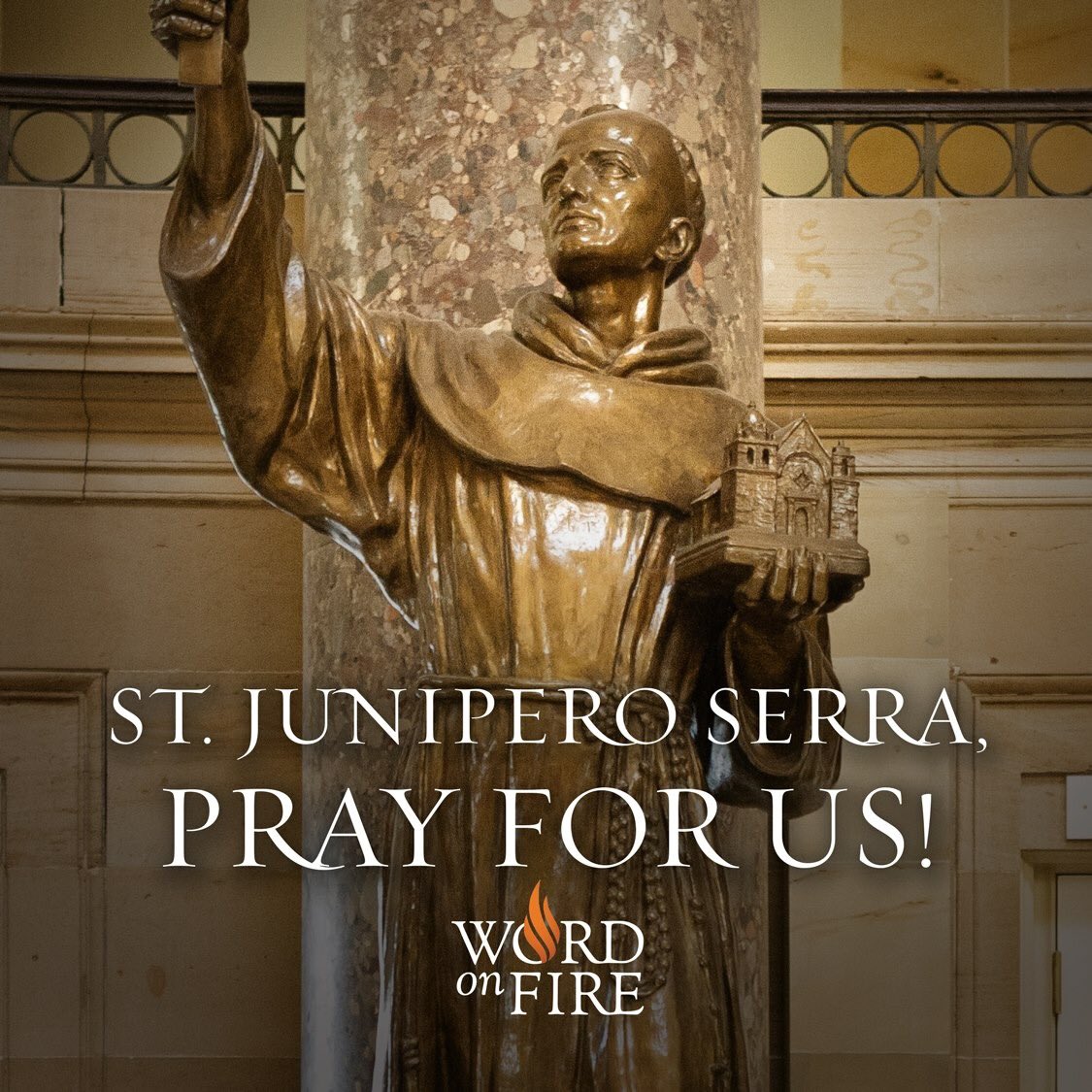1.
The saints see God face to face. They have everything, they are what we are made for. #HomilyTweet pic.twitter.com/bMyrVtoW7E
— Kathryn Jean Lopez (@kathrynlopez) November 1, 2015
2. From an opening note from Frank Sheed’s Saints Are Not Sad (collecting 40 saint profiles):
What has the reader to gain from meeting the saints in such large numbers? Two things–relief from monotony, and contact with vitality. First, relief from monotony: men are in their essential personality irreducibly diverse: but sin blots out the distinctions and reduces the diversity: sin drains out the color of the man (which is his own and inimitable) and replaces it with the color of sin which is common property: all sinners look less like themselves and more like one another. Saints are intensely themselves. Second, contact with vitality: sin, being a following of the line of least resistance, inevitably lessens vitality: it takes no more vitality to go with the stream of inclination than with any other stream: but to go against, as the saint does, demands immense vitality.
Let us ask God for the grace to be simple, humble people, the Pope concluded, the grace to be meek and learn how to cry, the grace to work for justice and peace and, above all, the grace to ask God’s forgiveness that we may become instruments of his mercy for others.
4.
My father quoting some pretty cool American Catholics in his recent card to me. pic.twitter.com/4COj0lEpeL
— Catherine Szeltner (@CatSzeltner) October 29, 2015
5. Archbishop Gomez a few months back: “I don’t know if Dorothy Day is a saint, but she makes me want to be one.”
6. A Q&A with Paul Thigpen about his Year with the Saints.
7. Will they know us as saints?
8. The Pope and a New American Saint
9. Want to Win the Race? Meet these Women. Walk with these Women.
10. You, Too, Can Be Mary Magdalene
11.
“Love God, serve God; everything is in that.”
-St. Clare of Assisi
— Fr. Steve (@FrSteveMateja) October 31, 2015
12. From the office of readings in the Liturgy of the Hours today, from Saint Bernard:
Why should our praise and glorification, or even the celebration of this feast day mean anything to the saints? What do they care about earthly honors when their heavenly Father honors them by fulfilling the faithful promise of the Son? What does our commendation mean to them? The saints have no need of honor from us; neither does our devotion add the slightest thing to what is theirs. Clearly, if we venerate their memory, it serves us, not them. But I tell you, when I think of them, I feel myself inflamed by a tremendous yearning.
Calling the saints to mind inspires, or rather arouses in us, above all else, a longing to enjoy their company, so desirable in itself. We long to share in the citizenship of heaven, to dwell with the spirits of the blessed, to join the assembly of patriarchs, the ranks of the prophets, the council of apostles, the great host of martyrs, the noble company of confessors and the choir of virgins. In short, we long to be united in happiness with all the saints. But our dispositions change. The Church of all the first followers of Christ awaits us, but we do nothing about it. The saints want us to be with them, and we are indifferent. The souls of the just await us, and we ignore them.
Come, brothers, let us at length spur ourselves on. We must rise again with Christ, we must seek the world which is above and set our mind on the things of heaven. Let us long for those who are longing for us, hasten to those who are waiting for us, and ask those who look for our coming to intercede for us. We should not only want to be with the saints, we should also hope to possess their happiness. While we desire to be in their company, we must also earnestly seek to share in their glory. Do not imagine that there is anything harmful in such an ambition as this; there is no danger in setting our hearts on such glory.
When we commemorate the saints we are inflamed with another yearning: that Christ our life may also appear to us as he appeared to them and that we may one day share in his glory. Until then we see him, not as he is, but as he became for our sake. He is our head, crowned, not with glory, but with the thorns of our sins. As members of that head, crowned with thorns, we should be ashamed to live in luxury; his purple robes are a mockery rather than an honor. When Christ comes again, his death shall no longer be proclaimed, and we shall know that we also have died, and that our life is hidden with him. The glorious head of the Church will appear and his glorified members will shine in splendor with him, when he forms this lowly body anew into such glory as belongs to himself, its head.
Therefore, we should aim at attaining this glory with a wholehearted and prudent desire. That we may rightly hope and strive for such blessedness, we must above all seek the prayers of the saints. Thus, what is beyond our own powers to obtain will be granted through their intercession.
13.
St Thomas Aquinas among the Saints: detail from Bl. Fra Angelico's predella for his own Dominican priory in Fiesole
https://t.co/WPkFkOh8az
— Fr Lawrence Lew OP (@LawrenceOP) November 1, 2015
14. Know Thyself: a Q&A with Peter Kreeft about his Practical Theology on St. Thomas Aquinas’ Summa.
15.
"The example of the Saints encourages us to follow in their same footsteps and to experience the joy of those who trust in God" (BXVI).
— Fr James Bradley (@FrJamesBradley) November 1, 2015












